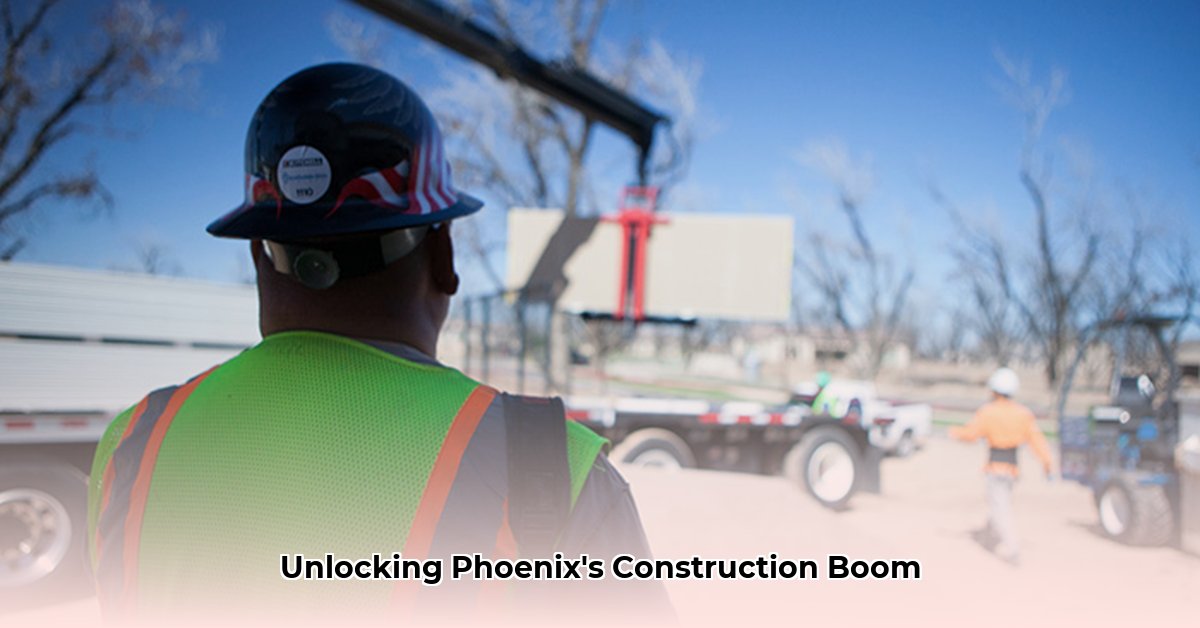
AMW Construction Supply, a Phoenix-based business established in 1984, enjoys a strong local reputation for providing a diverse range of construction supplies, including framing lumber, concrete, fasteners, and convenient tool repair services. However, to maintain its competitive edge and achieve significant growth within the dynamic Phoenix construction market, a strategic roadmap is essential. This article analyzes AMW's current position, identifies key opportunities and challenges, and proposes actionable short-term and long-term growth strategies.
Understanding AMW's Market Position
AMW's success stems from its strong relationships with local contractors and builders. This personalized approach is a significant strength, fostering customer loyalty. However, this reliance on traditional methods presents a challenge in a market increasingly dominated by larger national suppliers and online retailers employing sophisticated digital marketing. AMW's personal touch must be complemented by a robust online presence to expand its reach. This requires a strategic shift—transforming from a solely local, relationship-driven business to one that effectively leverages both traditional strengths and modern digital marketing techniques.
Navigating the Phoenix Construction Market
The Phoenix construction industry is characterized by cyclical booms and busts, influencing demand for building materials. Economic fluctuations and intensified competition create a challenging environment. Recent economic indicators necessitate a flexible approach to inventory management, and potentially exploring alternative revenue streams. Adaptability and proactive strategic planning are vital for long-term success.
AMW's SWOT Analysis
A comprehensive SWOT analysis reveals AMW's current strengths, weaknesses, opportunities, and threats:
| Strengths | Weaknesses | Opportunities | Threats |
|---|---|---|---|
| Strong local reputation and customer loyalty | Limited online presence and marketing efforts | Expanding into new product lines (e.g., sustainable materials) | Economic downturns and market fluctuations |
| Diverse product offerings and tool repair service | Geographic reach limited to Phoenix | Strategic partnerships with complementary businesses | Intense competition from national and online suppliers |
| Excellent customer service and personalized approach | Over-reliance on traditional marketing | Targeted marketing campaigns (digital & traditional) | Supply chain disruptions and material cost volatility |
| Experienced and knowledgeable staff | Potential for internal process inefficiencies | Expanding geographic reach beyond Phoenix | Shortages of skilled labor |
Actionable Growth Strategies
Based on the SWOT analysis, a tiered approach to growth is recommended:
Short-Term Strategies (0-1 Year):
Enhance Digital Presence: Develop a user-friendly website and implement SEO strategies to improve search engine rankings for relevant keywords. Employ targeted social media marketing to reach specific customer segments. Efficacy metric: Aim for a 25% increase in website traffic within six months.
Strengthen Customer Relationships: Implement a loyalty program and personalize communication to retain existing clients and encourage repeat business. Efficacy metric: Achieve a 10% increase in repeat business within one year.
Optimize Internal Processes: Streamline operations to improve efficiency and reduce costs. This could involve implementing new software or improving internal communication. Efficacy metric: Reduce operational costs by 5% within one year.
Long-Term Strategies (3-5 Years):
Geographic Expansion: Carefully consider expanding beyond Phoenix, perhaps through strategic partnerships or opening new branches in neighboring markets. Thorough market research is crucial. Efficacy metric: Successfully establish one new branch within three years.
Product Diversification: Introduce new product lines, particularly focusing on sustainable and eco-friendly building materials to meet growing market demand. Efficacy metric: Generate 15% of revenue from new product lines within five years.
Targeted Marketing: Develop specific marketing campaigns targeting distinct customer segments using both digital and traditional methods. Efficacy metric: Increase brand awareness by 30% within three years.
Technology Integration: Adopt technology to enhance sales, inventory management, and customer service, including mobile ordering and online payment options. Efficacy Metric: Reduce order processing time by 15% within two years.
Conclusion: Building a Brighter Future for AMW
AMW Construction Supply possesses a solid foundation built on strong customer relationships and a diverse product offering. By implementing the proposed short-term and long-term strategies, AMW can significantly enhance its market position and achieve substantial growth. Continued market analysis and monitoring are critical, alongside a proactive approach to addressing emerging industry trends and technological advancements. Further detailed research, particularly competitive benchmarking and market trend analysis, will refine these recommendations and increase AMW's likelihood of long-term success.